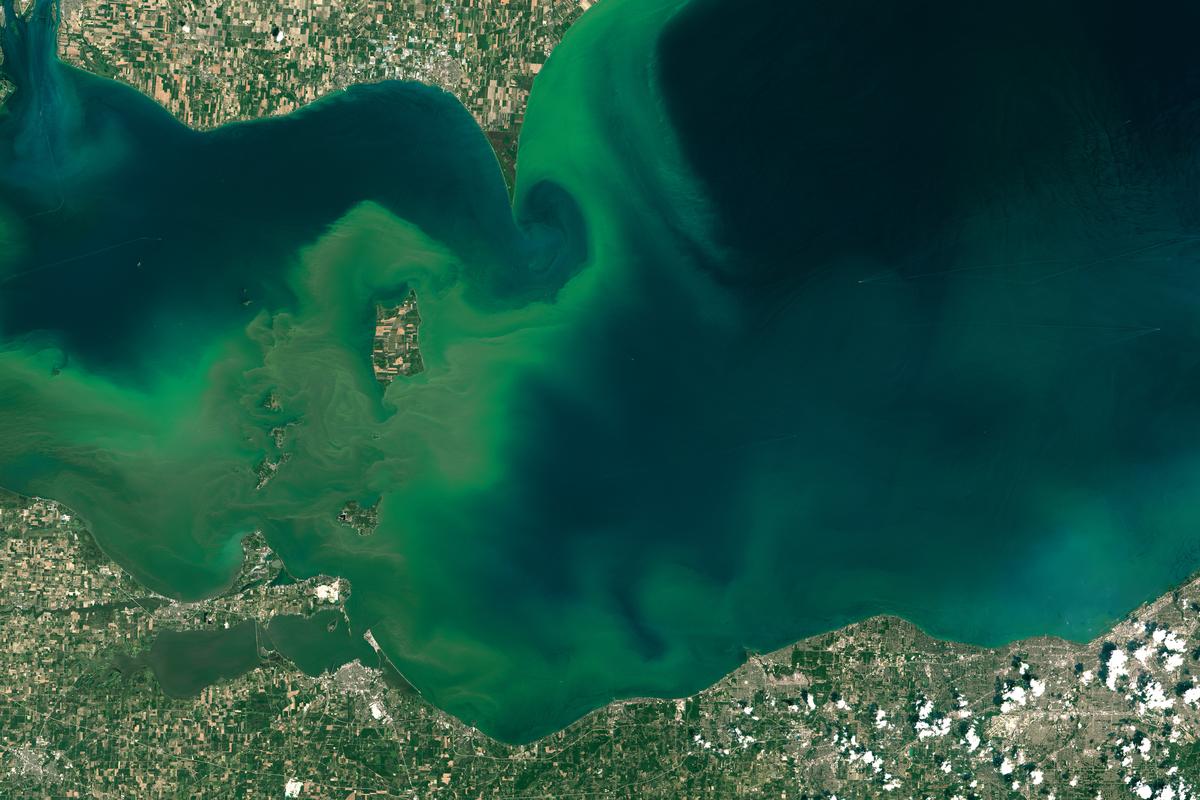
A 2016 satellite image showing cyanobacterial harmful algae blooms in Lake Erie. Image credit: NASA earth observatory.
One of the greatest concerns for the Great Lakes is the growth and persistence of cyanobacterial harmful algae blooms (cHABs). A recently recognized increase in cyanobacterial blooms in Lake Superior suggests that conditions in the lake are changing, making it more vulnerable to bloom events. The increasing occurrence, duration and severity of cHABs worldwide reinforce the need to re-evaluate the growth patterns that have guided the response to cHABs over the last forty years.
The goal of this study is to quantify cyanobacteria diversity within the Lake Superior watershed and examine how the cyanobacteria respond to environmental stimuli, which will help guide how to respond to future cHABs.
Funding
Support for this project is provided by Minnesota Sea Grant’s 2024-2026 Biennial Request for Proposal program. Every two years MNSG awards approximately $2 million in research grants through a rigorous, competitive, peer-reviewed process. Researchers based in Minnesota, who are not federal employees, are invited to apply. Grant awards average about $45,000 per year for two years, plus a graduate research associate whose cost does not count against the project budget.
Project team
Principal Investigator:
Cody Sheik
cssheik@d.umn.edu
Associate Professor
Swenson College of Science and Engineering
University of Minnesota Duluth
Principal Investigator:
Chris Filstrup
Applied Limnologist
Natural Resources Research Institute University of Minnesota Duluth
Jerry Henneck
Research Assistant
Natural Resources Research Institute
University of Minnesota Duluth
Beth Bernhardt
Research Assistant
Natural Resources Research Institute
University of Minnesota Duluth
Eva Hendrickson
Research Assistant
Natural Resources Research Institute
University of Minnesota Duluth
Why Sea Grant?
This project supports two of Minnesota Sea Grant's focus areas: Healthy Coastal Ecosystems and Environmental Literacy and Workforce Development.
The project supports advancement of environmental knowledge to support coastal ecosystem management, while training undergraduate and graduate students, co-development of management tools with project partners, and planned outreach activities.
Lead scientist(s)
Cody Sheik
cssheik@d.umn.edu
Associate Professor
Swenson College of Science and Engineering
University of Minnesota Duluth
Chris Filstrup
filstrup@d.umn.edu
Applied Limnologist
Natural Resources Research Institute
University of Minnesota Duluth